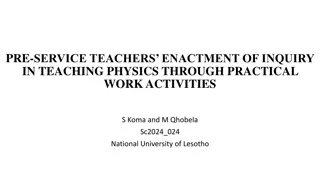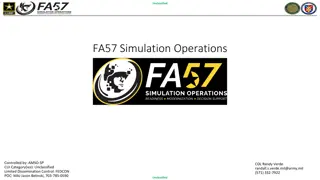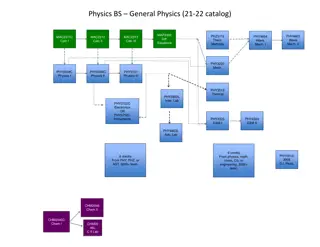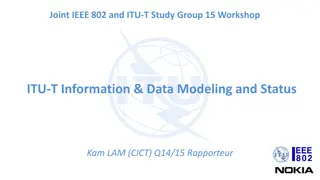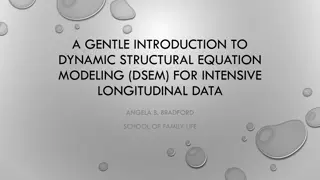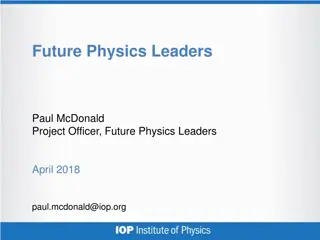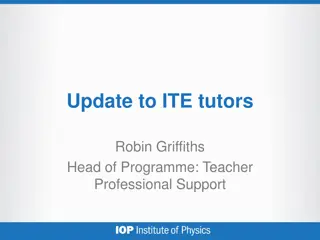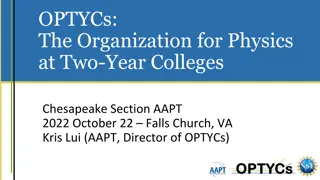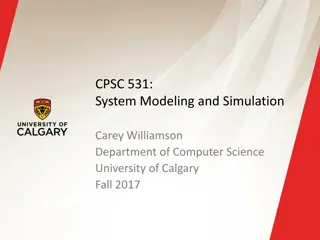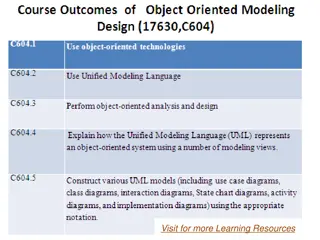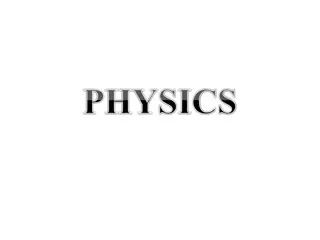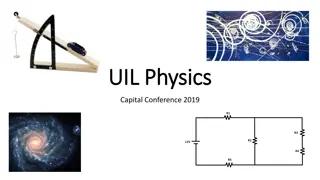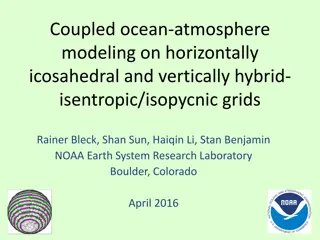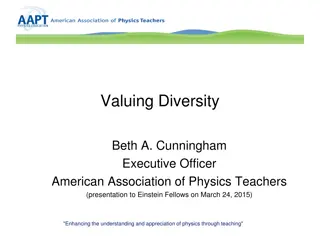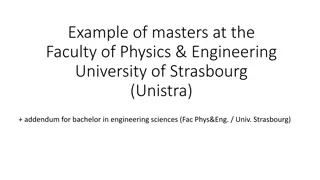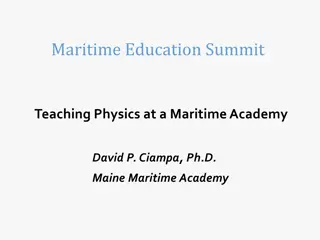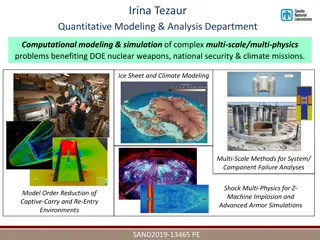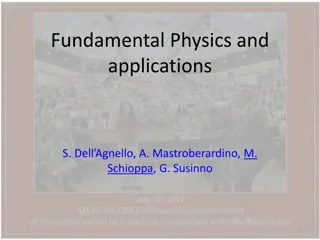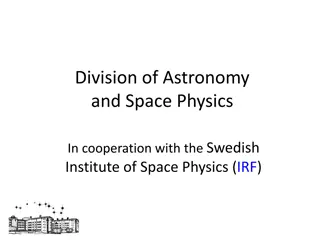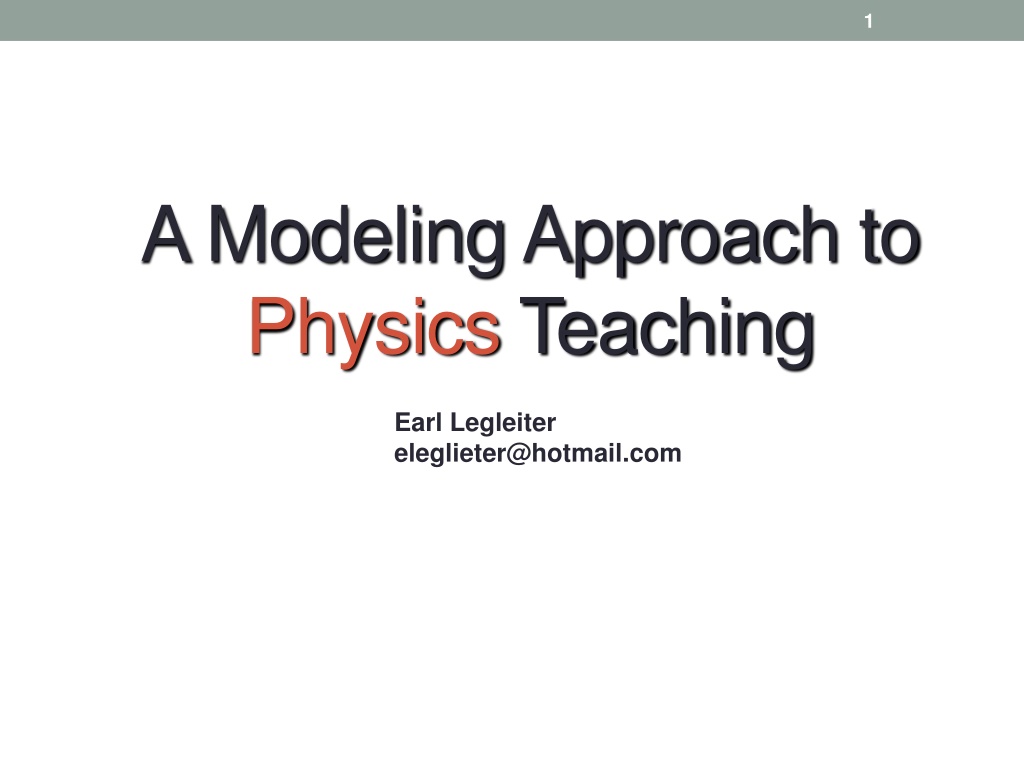
Understanding Modeling Approach to Physics Teaching by Earl Legleiter
Explore the modeling approach to physics teaching with Earl Legleiter, focusing on constructing shared models, scientific processes, and teaching methods. Learn about different types of models and the modeling cycle for effective physics education.
Download Presentation

Please find below an Image/Link to download the presentation.
The content on the website is provided AS IS for your information and personal use only. It may not be sold, licensed, or shared on other websites without obtaining consent from the author. Download presentation by click this link. If you encounter any issues during the download, it is possible that the publisher has removed the file from their server.
E N D
Presentation Transcript
1 A Modeling Approach to Physics Teaching Earl Legleiter eleglieter@hotmail.com
2 WHAT IS MODELING?
Audience Question How familiar are you with Modeling instruction? 0 never heard of it 1 have heard of it 2. know a little about it 3. know quite a bit about it 4 attended an introductory session 5 attended a Modeling workshop
4 Science and Modeling Scientists construct and use shared models to describe, explain, predict and control physical systems. By making this process explicit, we help students to Revise their mental schemata (models) in the light of experimental evidence and collaborative discourse Understand the scientific process
5 What Do We Mean by Model? Symbolic Representations Verbal Algebraic Physical System Mental Model Diagrammatic Graphical
6 The Modeling Method Construct and usescientific models to describe, to explain, to predict and to control physical phenomena. Model physical objects and processes using diagrammatic, graphical and algebraic representations. Recognize a small set of models as the content core. Evaluate scientific models through comparison with empirical data. View modeling as the procedural core of scientific knowledge
7 How to Teach it? constructivist vs transmissionist cooperative inquiry vs lecture/demonstration student-centered vs teacher-centered active engagement vs passive reception student activity vs teacher demonstration student articulation vs teacher presentation lab-based vs textbook-based
8 THE MODELING CYCLE
I - Model Development Students in cooperative groups design and perform experiments. formulate functional relationship between variables. evaluate fit to data. Post-lab analysis whiteboard presentation of student findings multiple representations justification of conclusions
II - Model Deployment In post-lab discussion, the instructor brings closure to the experiment. fleshes out details of the model, relating common features of various representations. helps students to abstract the model from the context in which it was developed.
11 GROWTH OF MODELING
Growth of Modeling two nationwide Leadership Modeling Workshops in physics were held in 1995 at ASU and the University of Illinois at Chicago expanded at ASU to physical science in 2000 and to chemistry in 2005 first 2-week biology Modeling Workshop was held in 2010 at Shady Side Academy in Pittsburgh, Pennsylvania.
CUMULATIVE STATISTICS 2013 Since 1995, 440 Modeling Workshops averaging 15 days duration (~90 contact hours) have been held, organized by 58 universities and colleges and 30 schools/school districts in 32 states. 5250 different high school teachers have participated, from 49 states. This includes about 10% of the nation's high school physics teachers. 785 different middle school teachers have participated. 975 teachers have taken a chemistry Modeling Workshop since they began in 2005. 1480 teachers have taken a physical science with math Modeling Workshop since they began in 2000. (Not all are different teachers.) 1400 teachers have taken a 2nd semester physics Modeling Workshop. (Some are duplicates; i.e., they took more than one, among electricity, light, and waves.)
APS 2014 Excellence in Physics Education Award For their impacts on physics teaching nationally through Modeling Curriculum and Workshops, and for contributions to physics education research through Modeling Theory.
Colorado Summer 2017 Workshops June 19 30, 2017 ThinkSpace - 455 S Pierce St., Lakewood, CO 80226 Physics I (mechanics) with Math Contact elegleiter@hotmail.com

